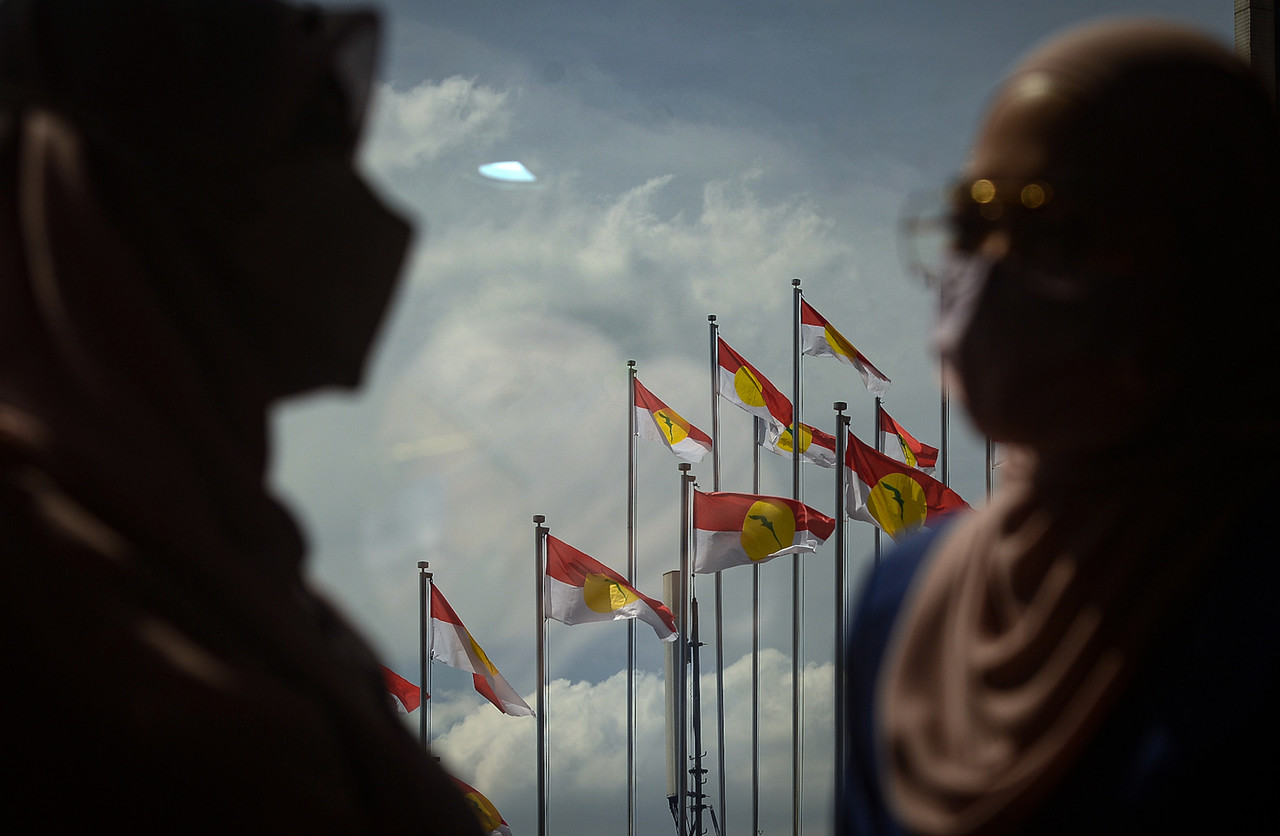WITH Barisan Nasional (BN) emerging triumphant in the recent Malacca and Johor state elections, UMNO’s influence and probable dominance in the forthcoming 15th General Election (GE15) has undeniably spiked by leaps and bounds.
The party seems to have laid to rest the ghost of BN’s maiden defeat in 61 years during the May 2018 general election to the extent that the date of its party election can be key as to when GE15 will be staged.
In his potential scenarios on election timing, Merdeka Centre of Opinion Research co-founder and director Ibrahim Suffian said the first scenario assumes that UMNO’s party election would be held before GE15.
“Under this scenario, the first potential window for the general election would be between end-February 2023 and before the start of Ramadhan (April 22, 2023),” he told a CGS-CIMB Research’s Second Malaysia Virtual Corporate Day recently which was attended by some 320 institutional investors.
“The second window would be between June 2023 and July 2023. The second scenario assumes that the UMNO party election takes place after the general election.”
Under this scenario, Ibrahim predicted that the final parliament session of the year could be brought forward to September-October 2022 to table the 2023 Budget.

If this happens, then the first window to potentially hold GE15 would be as early as between November 2022 and December 2022, with the second window being end-February 2023 until before Ramadhan (which starts on April 22, 2023), while the third window would be between June and July 2023.
On the possible election scenarios and outcomes, Ibrahim offered three scenarios and their implications:
First scenario: The status quo and the most likely scenario is where the three coalition parties and other independent candidates – BN vs Pakatan Harapan (PH) vs Perikatan Nasional (PN) – will contest against each other in the (GE15).
Under this scenario, BN is expected to gain majority seats in West Malaysia and potentially form the government with the Sarawak Parties Alliance (GPS) in Sarawak and parties in Sabah. While the DAP is expected to retain most seats, its ally, PKR, may lose the most seats in GE15 under this scenario.
Second scenario: This is where there could be an informal cooperation between the opposition coalition parties (PH and PN), although the likelihood of this scenario is low given that PAS (under PN) has openly declared a refusal to cooperate with PH (notably DAP).
Henceforth, a sizeable win is predicted for BN in GE15 with high potential to form the government.
Third scenario: This is where there is a formal cooperation between some opposition parties, leading to potential three-cornered fights for Malay votes (BN vs PKR/PN vs PAS). The possibility of this is moderate as there is some likelihood of a PKR-Bersatu deal.
In this scenario, the potential election results could be a repeat of 2018 (GE14) although this is dependent on how many seats PAS contests, if Bersatu is able to have an electoral pact, and if PN/PH voters would reciprocate with support.
Ibrahim further shared a few developments that could influence the GE15 outcome, namely:
- Whether the UMNO party election happens before GE15;
- The opposition parties’ ability to cooperate with each other (he sees the chances of the cooperation to be higher if the election is held in 2023); and
- The election turnout (he is of the view that BN will have an advantage if voter turnout is low and a divided opposition persists).
For the remaining of 2H 2022, four developments to watch out for are (i) intra-UMNO stability; (ii) economic growth; (iii) political re-alignment and cooperation; and (iv) COVID-19 infection rate.
Meanwhile, the most recent poll conducted in June 2022 by the Merdeka Centre of Opinion Research showed that 67% of poll participants think the country is heading in the wrong direction – a sharp increase from 43%, based on a poll in September 2021.
Based on the polls, the main areas of dissatisfaction are (i) economy concerns (42%); (ii) political instability (23%); and (iii) poor and inefficient administration (8%).
The approval rating of the Government (PN and BN) has also fallen to its lowest point of 34% in June 2022 (compared to 63% in May 2020) due to inflation and recessionary concerns as well as lack of confidence in the Government. – July 25, 2022










